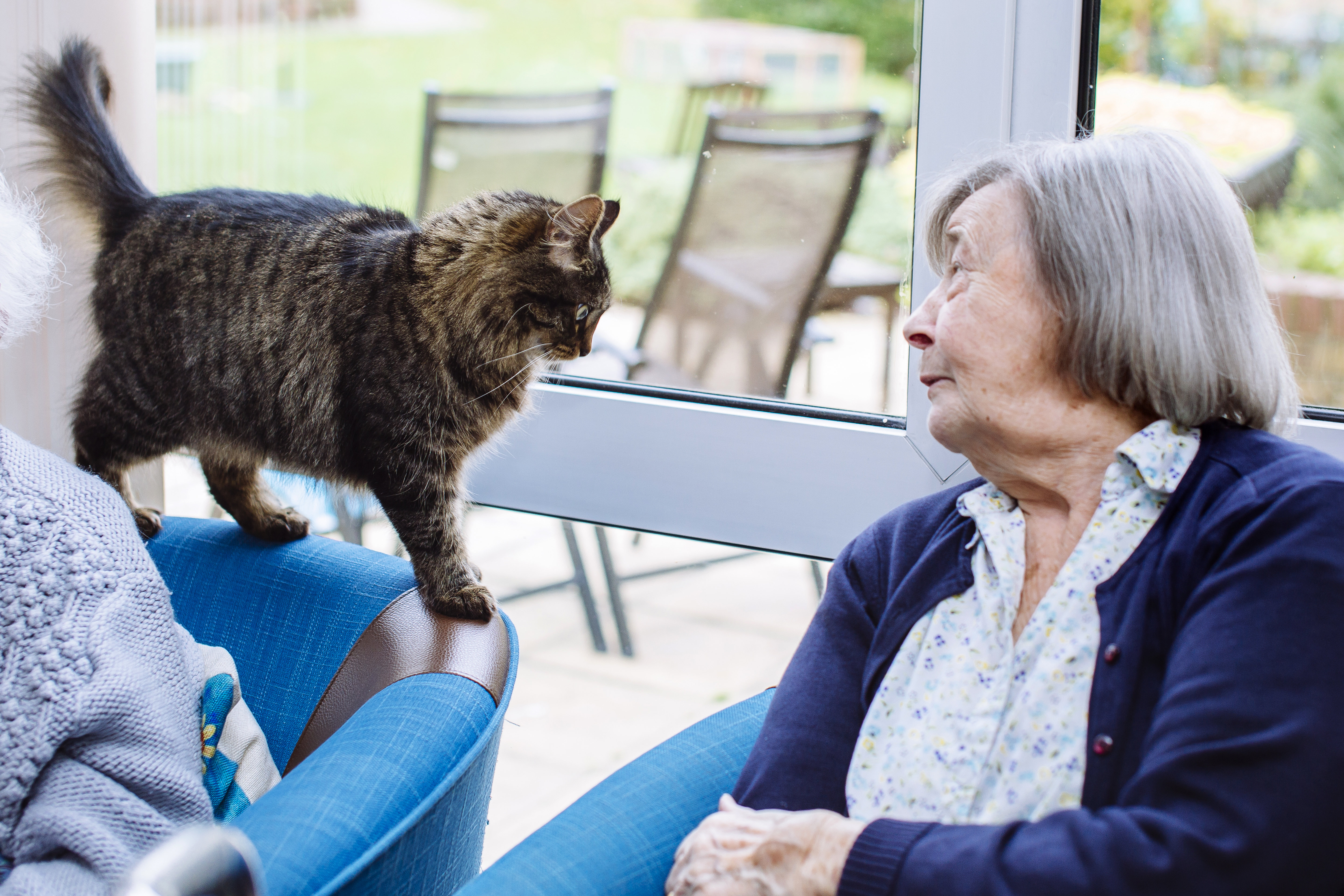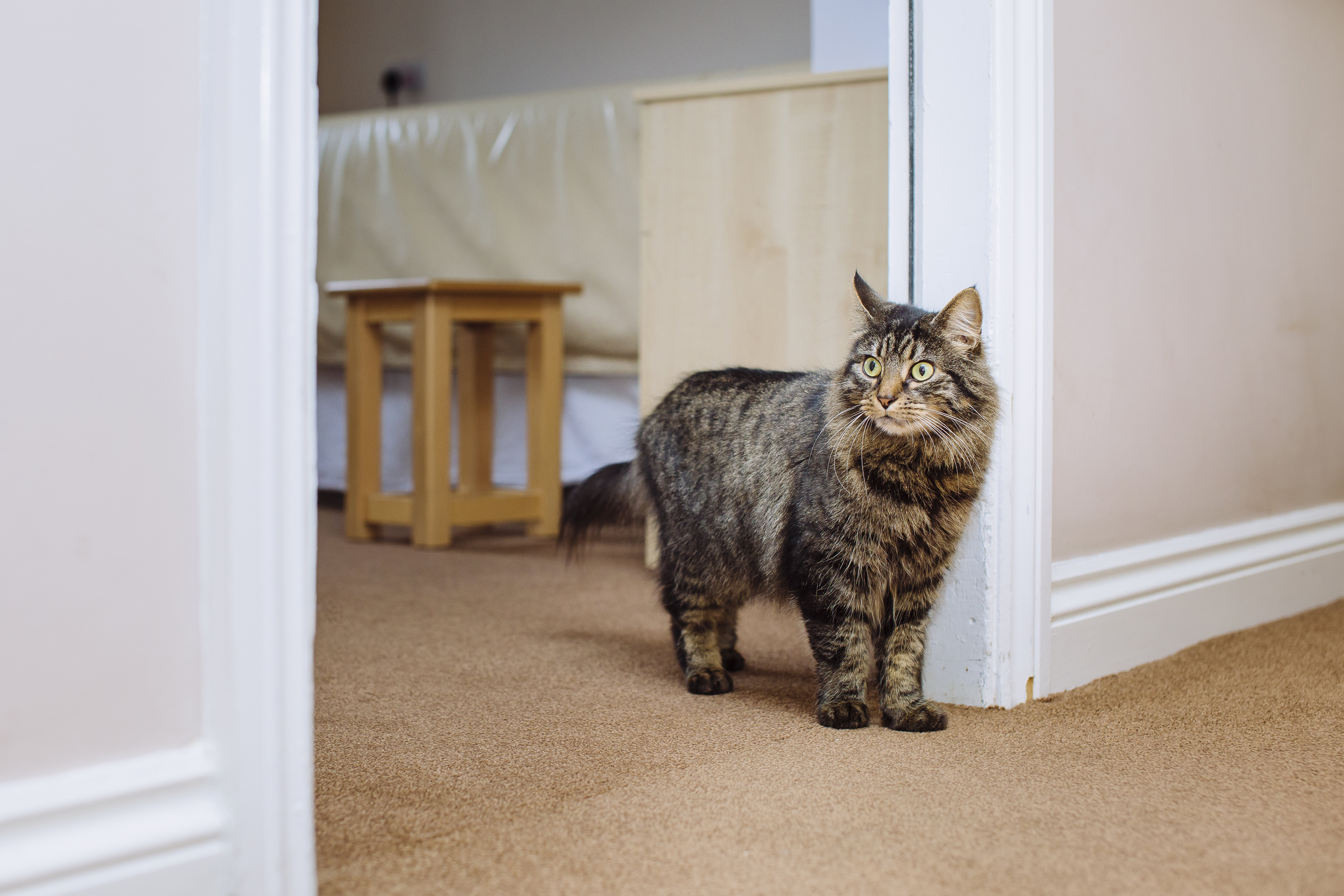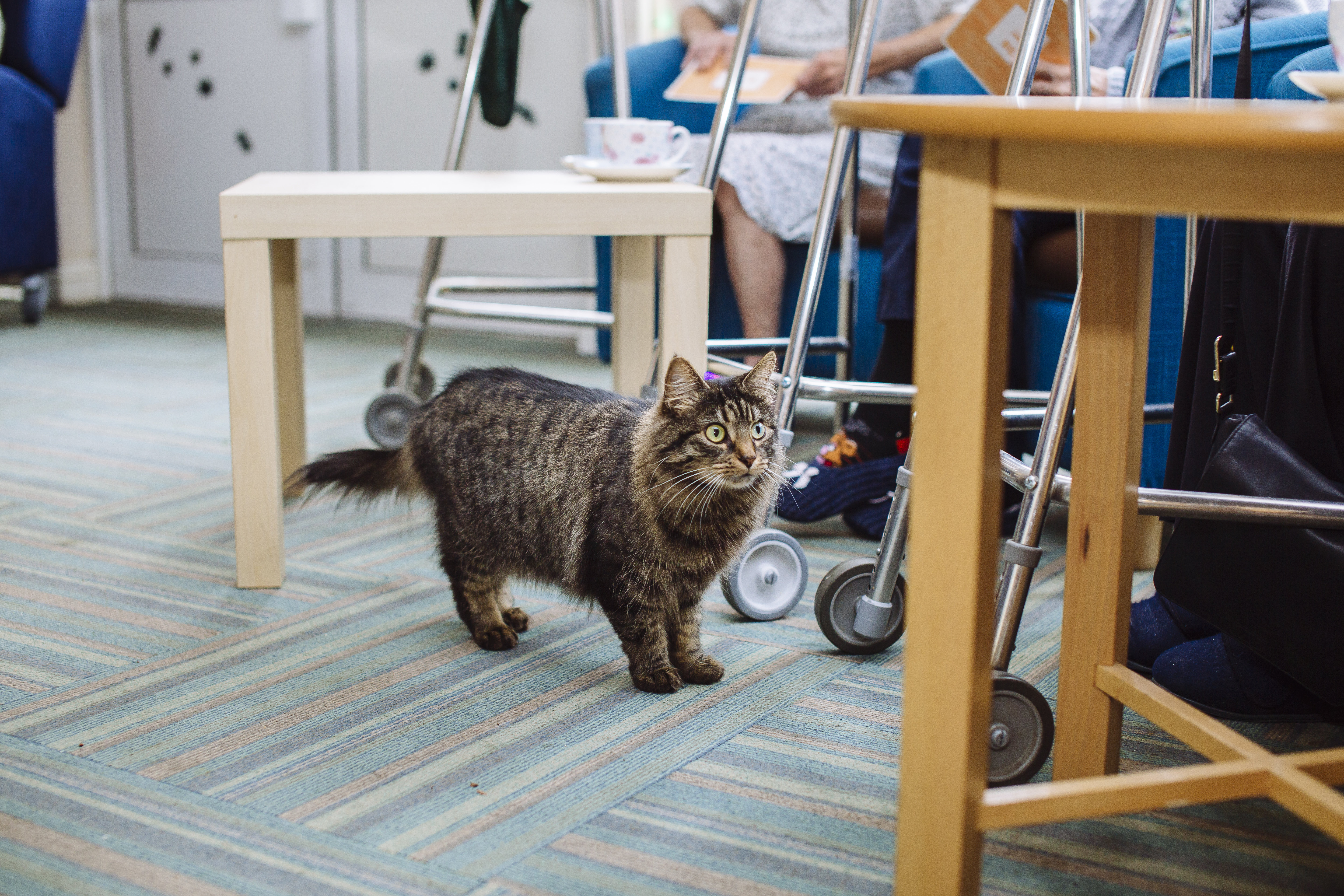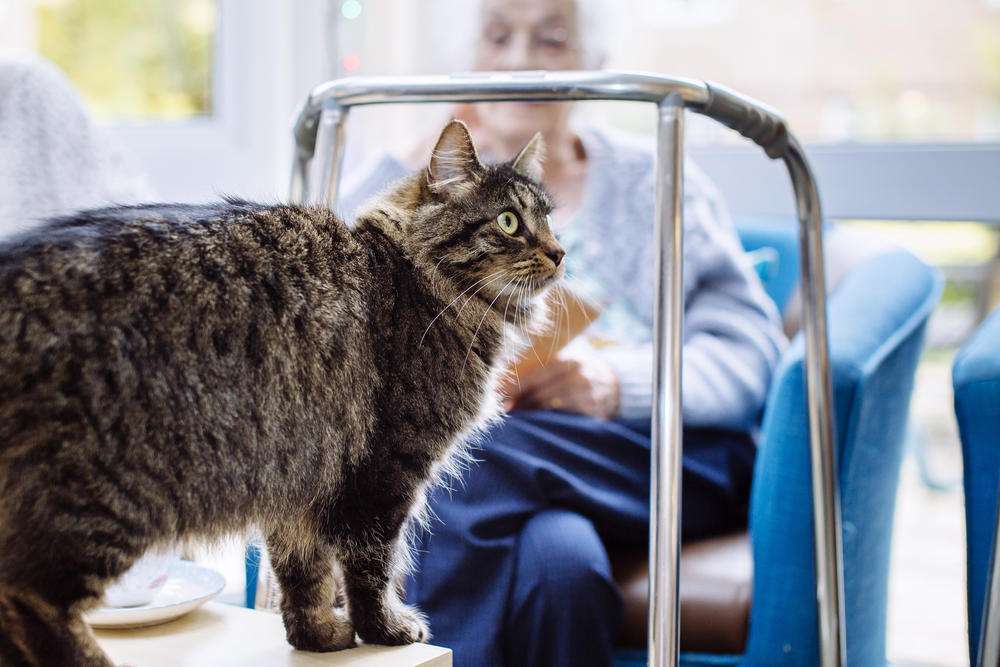Cat Libby brings joy to elderly people in care

Pets can make a house a home, and that’s certainly the case for a very special Blue Cross cat living alongside elderly people in a residential care scheme.
Libby was rehomed by our Hertfordshire centre to Fosse House in St Albans and spends her days spreading joy to those that live there, contently weaving her way in and out of rooms and snuggling up beside them in the lounge.
It has proved to be the perfect calling for the abandoned puss, who sadly arrived at Blue Cross in the back of a taxi, all alone and with no details about her past to help us understand her needs.
We soon discovered that she was pregnant and she gave birth weeks later. But while her kittens flew the nest to forever homes, poor Libby was left waiting for her second shot at happiness.
That was until the centre in Kimpton was contacted by Fosse House Manager Zoë Hiscox. She had recently taken on the role and was adamant that the presence a four-legged friend would bring huge comfort to the residents.
We agreed and just knew that Libby, who was in our care for nearly four months, would be the ideal candidate.
“We thought she’d be perfect because she was so lovely and relaxed,” said Rehoming Supervisor Kirsten Findlay. “She’s interactive but calming and affectionate, without being too demanding. She wasn’t in your face, and we thought that she would be the type of cat that would just sit alongside people.”
It was music to Zoë’s ears and within days Libby embarked on her new life as a therapy cat.
“She settled in straight away,” said Zoë. “Within an hour you would have thought she had always been here. It’s her attitude; she’s bolshie and not afraid, but affectionate at the same time. Nothing fazes her.”
Fosse House has 81 residents and is part of not-for-profit organisation Quantum Care, which strongly believes in the importance of pets in people’s lives and is open to animals living in its homes.
It’s an approach that Blue Cross strongly advocates as the benefits to residents are huge; the mere presence of a pet can help relieve stress and when people stroke them it can increase endorphins, making them happier.
“Libby being here makes it more like a home. She’s not all over everyone’s laps, but when the residents are sitting watching tele she’ll be sitting in the chair next to them. It’s comforting and more homely for them.

“Many of the residents here have got high levels of dementia but for those that don’t remember her it doesn’t matter, because in the moment it gives them that good feeling. If they can’t walk or talk, it’s something for them to look at and engage with. And it can bring back to them fond memories of when they’ve had pets.
“Libby has also been known to comfort some of our really sick residents in their final days. It’s like she just knew. But she’s very intuitive, so if somebody isn’t keen on cats she will sense that and will stay away.”
One of the many residents whose days are lit up by Libby is Derek Parkes, who was heartbroken to leave behind a cat of his own when he started to need round-the-clock care for chronic obstructive pulmonary disease (COPD).
He said: “She waits in my chair every morning for me when I come in for breakfast and she has started sleeping in my room on my bed, and I open my window just enough to let her in from outside as I hear her meow.
“It’s nice having her around. I had a cat before I was here who I really miss and it reminds me of her.”
Zoë added: “I didn’t even realise until now that Libby had been going into Derek’s room. There’s so much that she does for people that brings so many benefits that we don’t even know about, as this proves. If only she could talk!”
Libby’s presence has also had an impact in areas that Zoë, who gone onto rehome four chipmunks and two rabbits for the residents to interact with, hadn’t even anticipated.
It’s all just so positive; we wouldn’t be without Libby now and would love more pets.” Zoë Hiscox, Manager of Fosse House
“There has been a massive knock-on effect in that Libby and the other animals encourage younger visitors”, she said. ”Care homes to children can be really scary places, but now we’ve got a few families with little ones who really want to go and see grandma because of the pets, and turn up with treats for Libby.
“Children are excited to visit and see the animals so the families see more of their relatives, and the elderly love to be around kids. It’s all just so positive; we wouldn’t be without Libby now and would love more pets.”
Kirsten added: “It’s really lovely to hear how much happiness Libby brings to so many people and we’re glad that we could give her a second chance to do that. It’s brilliant to be able to match a pet to a home so perfectly.”
Pets and care homes
Blue Cross encourages all care homes in the UK to have a clear pet policy and encourages, wherever possible, residents being able to take their own animals with them should they go into supported housing. Leaving a pet behind can have devastating effects. Read our guidance and learn more about the benefits that animals can bring to elderly people.




